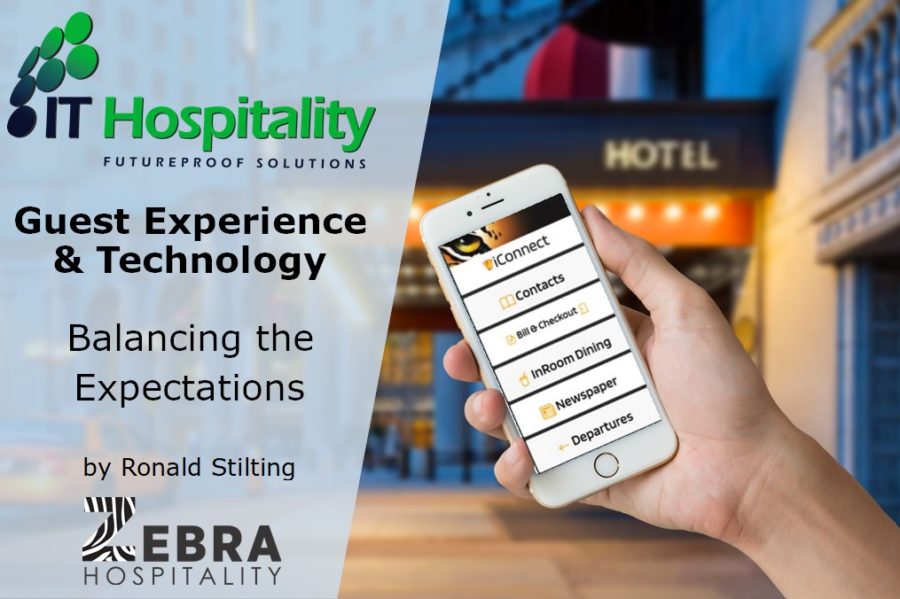The key element of hospitality is the guest experience. The requirements for the guest experience may be different depending on the market segment but all processes etc. should be easy, pleasant, and smooth. The requirements of business guests may be less complicated as the trip and stay is serving the business but for leisure guests the guest experience is the main reason to use hospitality.
Human interaction is a basic human need and has always been a key element in the hospitality guest experience. In many cases it is one of the reasons we choose a certain destination, e.g. when the staff and population are especially friendly and hospitable. Putting smiles on people’s faces is also a key-motivation for many hospitality professionals. But human interaction is being rapidly replaced by touchless and contactless technology and this development has been accelerated by the pandemic.
There is most likely a difference in expectation of the guest experience and the acceptance that it is being replaced by technology depending on the generation. For the younger generations who mostly “live online” and seem to be less focused on live interaction it already is the “New Normal”. Baby Boomers and older Millennials appreciate human real-life interaction and like the ease of digital solutions.
In many everyday situations human interaction has already been replaced by technology, e.g. in customer service where we are often dealing with phone or online chatbots. Gone are the days that someone on the phone listened, showed empathy, and helped to solve a problem which was a satisfying experience. Though my personal experiences with these systems are “mixed” at most and still not as easy as to explain your issue to a person, they are rapidly improving through steadily improving AI.
The balancing act of integrating technology in the guest experience.
Hospitality industry, as all businesses, have various reasons beside the pandemic-related reduction of contact, to use technology. Employees are far more costly and less efficient in solving issues and in many cases questions & answers are repeated numerous times (e.g. locations & opening times).
Reservation, Check-in and check-out can be handled without a hotel employee and won’t be a problem. Technology can handle these necessary procedures efficiently and the smooth “ride” will add to the experience, so you can focus on the real reason you came to a hotel/resort. Technology will rapidly improve and access control, ordering, payments etc. will be even easier and smoother. I expect RFID/NFC, web-apps, face detection etc. to replace the currently omni-present QR-code.
But can technology replace the smile and empathy of a helpful guest service agent? The masks worn by employees hide their smiles, so it is already more difficult to express empathy.
As guests/consumers are aware of the technological possibilities everybody expects “instant gratification” = nobody wants to wait for an answer on a question or for his service. I am sure everybody would prefer an immediate answer from a “system” over standing in line at the reception to finally get an answer on a -sometimes basic- question.
My conclusions & recommendations:
- Declare the guest experience the ultimate goal of implementing technology.
- Ensure there is a strong technology infrastructure to support all the systems
- Integrate all systems into 1 eco-system and avoid disruptive changes of systems
- Implement an integral DGI Digital Guest Information system (e.g. Code2Order) with as many interfaces as possible and use it to its fullest.
- Offer as many “touch-points” to guests as possible; include all messenger platforms such as WhatsApp, Instagram DM, Facebook messenger, WeChat, Telegram etc.
- Use a chatbot for a large part of the guest questions.
- Listen and monitor to guest interactions handled through automated systems to improve service delivery, information flow and content.
- Offer the option to chat or speak to a “real” person online or per phone-/videocall
- Go “hybrid” in service delivery; be present when guests may need assistance when using technology, e.g. at check-in and pro-active IRL (In-Real-Life).
- Use smart integrated digital signage and IPTV systems in rooms for information.
- Use a CRM to personalize all communications with the -prospective- guest.
- Provide “real-life” touchpoints with emphatic staff and excel at service delivery.
- Use resources more creative to create unique and authentic guest experiences that cannot be replicated through technology but create strong memories and exposure on social media.
About Zebra Hospitality the Truly African Innovative Contemporary Hospitality Concept. Providing everything from concept & design support and monitoring, project management, set-up of organization, all pre-opening activities and operational management according to international standards.
About Ronald Stilting, Graduate Hotel Management School Maastricht. Active in hospitality management & consultancy for more than 35 years / in Africa since 1998. 8 hotel pre-opening (6 in Africa) and various rebranding & turn-around projects. General Manager of the Year 2019 Nigeria. Founder/MD of Zebra Hospitality
Download the Hackers Guide to New Normal Hospitality Technology


